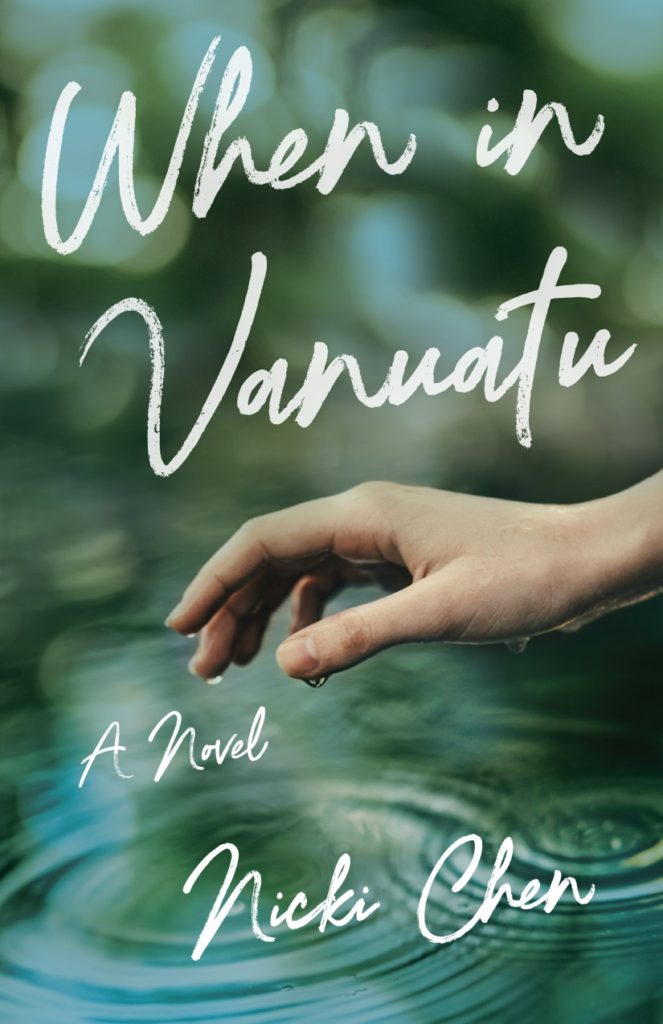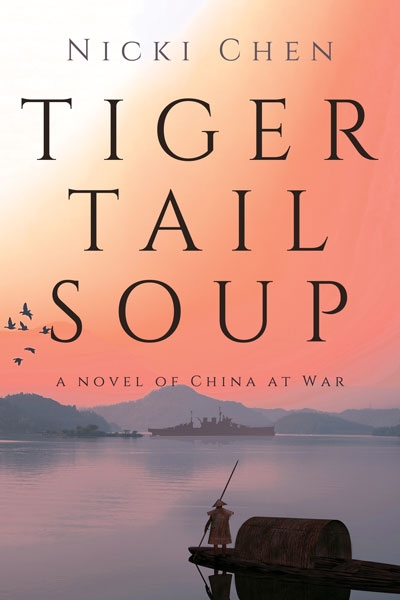 It was 1983, our first trip to China, and though my husband had been born a few miles from where we now stood, he wasn’t entirely at ease. Let’s just say that until he knew the situation better, he preferred to act with judicious caution. His cousin Andy, it seemed, had no such concern.
It was 1983, our first trip to China, and though my husband had been born a few miles from where we now stood, he wasn’t entirely at ease. Let’s just say that until he knew the situation better, he preferred to act with judicious caution. His cousin Andy, it seemed, had no such concern.
We’d traveled from Manila for this trip—Andy and his wife Jane, my husband Eugene, our three daughters and I. It was the first opportunity in thirty-four years for Eugene and Andy and Jane to visit Gulangyu to pay their respects at their grandparents’ graves. For Andy, the primary objective of the trip was to retrieve his mother’s ashes and bring them back to the Philippines.
He’d tracked her urn to a mausoleum at the edge of this monastery. Scurrying around Gulangyu and Xiamen, he’d gathered the required papers and all the proper signatures. So what in the world was holding things up?
The rest of us, waiting in the monastery courtyard, winced as his voice and then the voice of someone else, every bit as insistent as his, blasted through the half-open door of the mausoleum.
From what I’d observed in the past few days, the people in my husband’s hometown were as strong willed and direct as he and his cousin Andy were. The main difference was, the local people knew the ropes.
As the argument inside continued, our three daughters wandered over to the edge of the yard. The oldest started a song from Grease, and the others joined in. Eugene and Jane huddled, spreading worry from one wrinkled brow to the other. They’d long since switched from English to Hokkien, a language I didn’t understand. Even in English, I wouldn’t have known what to suggest.
Twenty minutes passed. Andy and the keeper of the urns paused and then started yelling again. Eugene went inside. After a while he marched out, and the shouting resumed. Would they ever give up?
“I’m going over there across the road and take some pictures,” I told Eugene. He nodded, too concerned about Andy to pay much attention.
 In those days, Chinese roads were peaceful—no smog, no traffic jams. That day there wasn’t even a bicycle in sight. I crossed over and looked around, searching for a good subject to photograph. I’d stopped doing Chinese brush painting by then, but I still had an eye for Chinese landscapes. I climbed a small hill and came upon one of my favorite subjects: a wind-twisted coastal pine. It was leaning out from a low cliff. I pointed my camera, took a few shots, moved to the side for a better angle, and clicked again. Then I stepped back so I could include the water and the islands in the distance. Holding the camera up, I looked through my viewfinder.
In those days, Chinese roads were peaceful—no smog, no traffic jams. That day there wasn’t even a bicycle in sight. I crossed over and looked around, searching for a good subject to photograph. I’d stopped doing Chinese brush painting by then, but I still had an eye for Chinese landscapes. I climbed a small hill and came upon one of my favorite subjects: a wind-twisted coastal pine. It was leaning out from a low cliff. I pointed my camera, took a few shots, moved to the side for a better angle, and clicked again. Then I stepped back so I could include the water and the islands in the distance. Holding the camera up, I looked through my viewfinder.
That’s when I heard Eugene. “Honey,” he shouted. “Come back! Quick! Put your camera down.” He was running up the hill, and from the look on his face I guessed that Andy had finally gone too far, that he’d seriously antagonized the man in charge of the urns and the man had called the police who were right this very minute preparing to haul him off to prison.
I didn’t see the soldier with his rifle drawn—not until I was almost back to the road. By then he’d lowered his rifle. He struck me as very young and slight. Not particularly menacing … except for the rifle.
There must have been a sign somewhere (in Chinese) that said “Keep out” and “Absolutely no photography.” Or maybe everyone else knew that the Matsu Islands across the sea were the object of a nasty, long-running border dispute between China and Taiwan.
“He was going to shoot you,” Eugene said. “I told him I’d take care of it, that you were a foolish foreigner who didn’t know any better.”
Now, some thirty-one years later, I’m still not sure the soldier would have shot me. I tend to think not. But then, having grown up in a peaceful time and place, I just naturally expect people to be friendly and that in the end things will work out. Eugene, who was born in a war zone and spent his childhood in the middle of first one war and then another, had a different outlook.
For Andy, that day was a bust. He had to leave the mausoleum without getting his mother’s ashes.
He didn’t give up though. Not on your life. The following afternoon, he returned accompanied by a local official whose superior status the keeper of urns immediately recognized. Suddenly the once obdurate man became soft as tofu.
In the end, Andy succeeded, walking away with the urn and his mother’s ashes.



There are so many temples here in Binjai that have ash keeping rooms.
These rooms are usually scary. They are usually pale white and cold; or filled with the paintings of Chinese Hades.
Whenever I got into these rooms, I can’t help feeling sad.
Cremation is never as popular (or as prestigious) as “proper burial” in the graveyard with the nicely carved gravestones.
The properly buried ones are usually worshiped in the homes of their children and grandchildren (in a small altar).
An ash-keeping room does sound scary, especially if they have paintings of Chinese Hades.
We take so much for granted. Maybe that’s why new US citizens shake their heads at us!
The Matsu Islands were (and still are) a contentious issue between China and Taiwan. The Chinese civil war had been over for 34 yrs. at that time, but not everything had been settled. We heard that they were still shooting propaganda leaflets across the Taiwan Strait. Luckily for us in the US, our civil war was a little farther back in history. I think there are still some bad feelings, but not so much here in the Pacific Northwest.
Wow! That would be quite the adrenaline rush . . . to turn around and see a soldier ready to shoot me for shooting the landscape.
Humans are a funny breed.
I just finished reading Empire of the Sun, a novel about the British author’s experience when he was a boy interned near Shanghai during WWII. What surprised me about human nature in that story was how cruel and dangerous some of the prisoners became at the end of the war after the Japanese opened the gates and fled. It’s a story without the normal wartime propaganda of one side or the other. Nobody comes out smelling like a rose.
Different cultures! For some of us who have never lived abroad, it’s amazing. What’s the big deal? Give the family the ashes!
My guess is that since the Cultural Revolution, which was such a dangerous time, had only been over by then for seven years, the keeper of the ashes was hesitant to do anything unusual that would get him into trouble. Andy was probably the first person who’d asked to take ashes out of the country. And since China had been isolated for the preceding three decades, Andy may have been the first overseas Chinese the man had seen. He and my husband were certainly stared at because of their different clothes and manners.